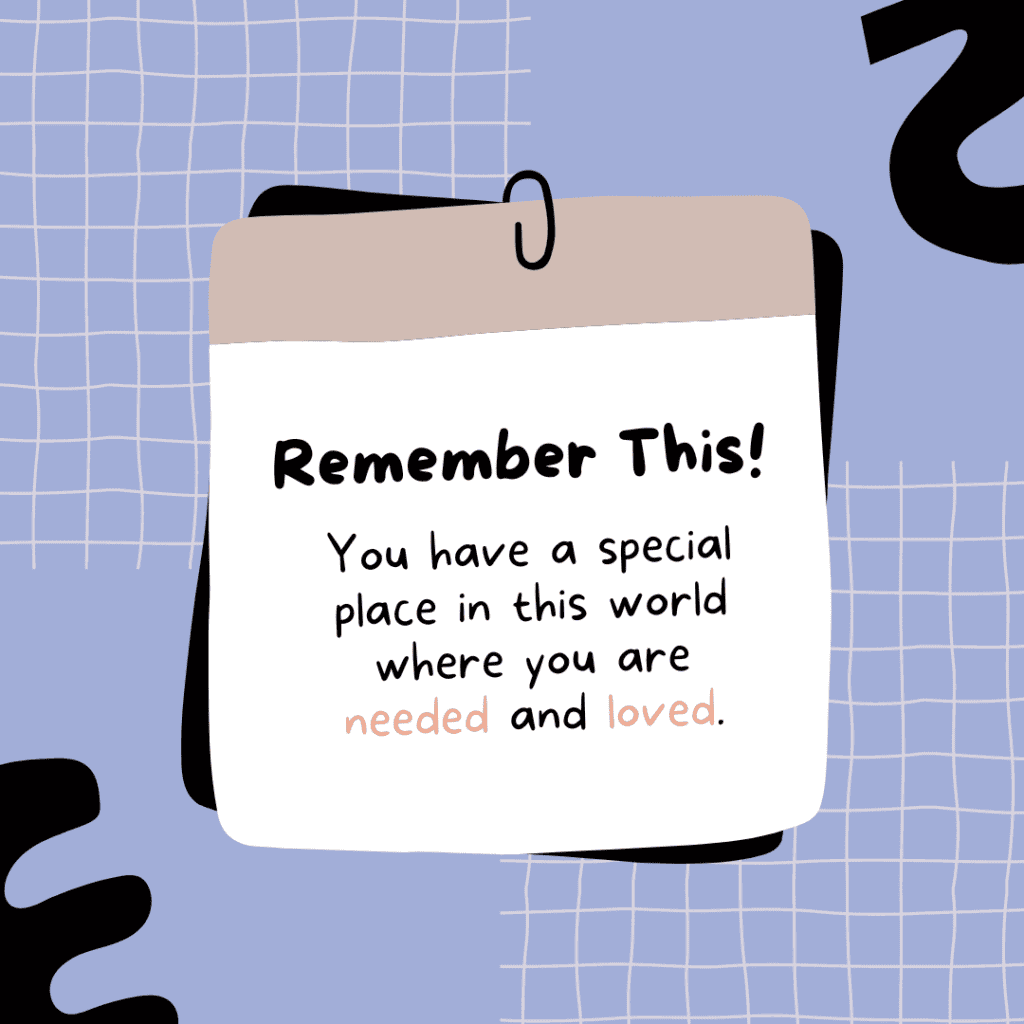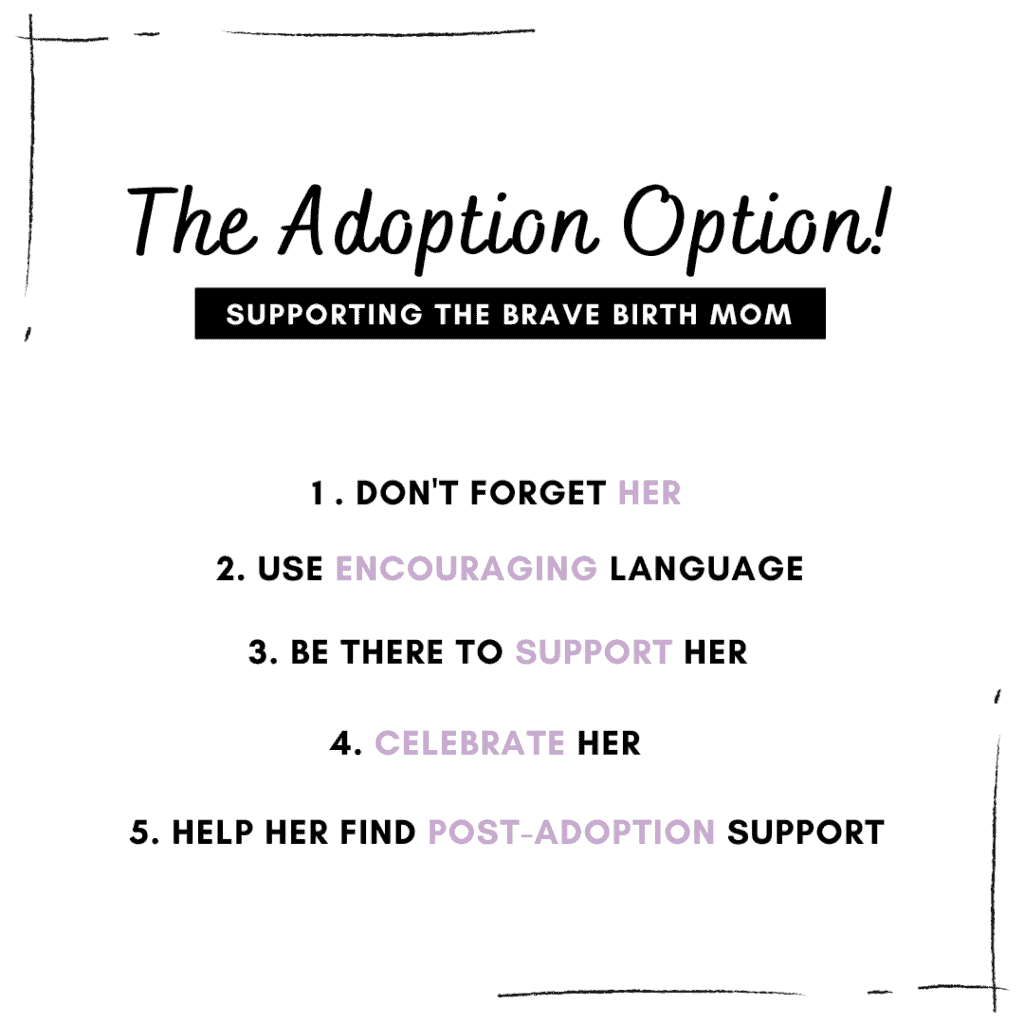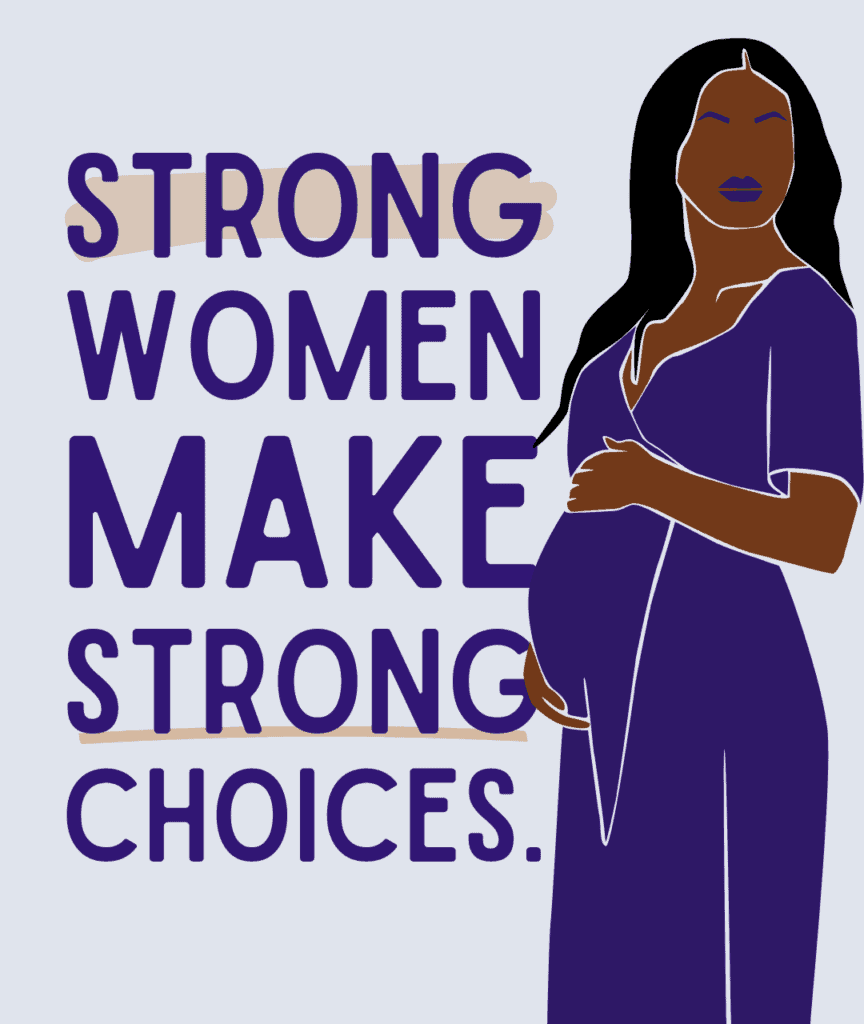A lingering question in nearly every adopted child’s mind is who their birth mom is. It’s a common curiosity – a study of American children and teens finds that 72 percent of adopted adolescents want to know why they were adopted, 65 percent want to meet their birth parents and 94 percent want to know which birth parent they look like. There is a connection between a birth mother and child from conception and a deep love for choosing life and adoption over abortion. But, the journey of finding a birth mom can be emotionally and logistically complicated. Before beginning, here are some things to consider.
Before even beginning the process, address what the desired results are. Is it to have a one-time meeting to end the curiosity and thank your birth mom for choosing life? Or, is it to have a subsequent, long-term relationship with her and potentially her family? Either way, it’s essential to be equipped for whatever the outcome may be. Bella, an adoptee who went through the journey of finding her birth mom, says: “My advice would be to spiritually make sure you’re in a place where you’re confident and strong, with a firm foundation in God,” she explains. “It’s an emotional roller coaster and going through it without having that foundation – and people pouring into you on your journey – would be nearly impossible because there is a chance that it doesn’t go the way you want to. I waited until I was in my twenties (most states have a minimum age of 18 to start the process) because I was sturdy, stable and able to handle any outcomes.”
Though many begin their search hoping for the best, there is a good chance that what is learned will have some negative information. Setting realistic expectations is essential to eliminating the possibility of an emotional blindside. Potential outcomes can even include:

It may turn out you were conceived through rape, but the birth mom made the courageous decision to choose life. Or, your biological parent unequivocally accepts you into their family, but there are still feelings of disappointment or anger. With any outcome, there are inevitably pros and cons. Regarding the likelihood of results, Dr. Brad Imler, President of the Christian Adoption Alliance, says, “It’s possible that if you meet, it’s a harmful experience. When I met my birth father, he started from a place of denial. He would later say, ‘Whether you are [my biological son] or not, I do not want anything to do with you.’ When you start a search, it’s vital to be prepared to receive a refusal to meet or words that may be even more hurtful than the refusal. However, most birth mothers are happy to hear their placed child wants to meet them and, in many cases, something they longed for.”
Chelsea, an adoptive mother of six (three of whom found their birth mothers), explains that no matter the outcome, there is a “sense of completion and loose ends tied… Satisfaction can lie in just knowing. There are unique struggles and stories to each outcome. But it often comes down to a heart-tug from kids to simply say, ‘thank you.”
The last step in emotional preparation is to have a conversation with your adoptive parents. It’s nerve-wracking but important, and they may understand more than you assume. “I expected it their whole life,” says Chelsea. “It’s natural to be curious about what you look like, if you have siblings and where you come from. It’s a part of who you are and your story.”

According to Chelsea, most adoptive parents also share a love for their child’s birth mom: so they’re likely receptive to the journey of finding her. “From the moment they were placed in my arms, I thought of their birth mothers. For an adoptive mom, you have incredible gratitude and instant love for the birth mom who gave them life. She’s a hero,” Chelsea continues. “So, just explain to your parents, ‘You’ll always be my mom and dad, but I have many questions I want to be answered. However, I don’t want you to feel like I’m missing something or you aren’t enough.”
Once you’ve decided to reach out to her, you’ll need a confidential intermediary to gather information from the state and court to facilitate a meeting. The good news is the process isn’t the six-month or longer waiting period that it used to be. In fact, some reunions take just days or weeks. However, since it’s such a significant moment for the birth mom as well, she may need time to process all of those emotions and fears.
“I wondered where my child was every day,” says Sabrina, a birth mom who became pregnant at just 17 years old and chose adoption. “I was driving home when I got the call she wanted to meet. I was overjoyed and filled with so many emotions. Just knowing she was alive and curious about me meant the world. Even if she was mad at me, maybe she would give me just five minutes to explain, or even just 30 seconds to tell her I love her and thought about her every day.”
While waiting for her response, people with experience suggest not to dwell on the what ifs. It’s a rabbit hole that can consume all other thoughts. Instead, communicate feelings and lean on loved ones during the waiting period.
Once your birth mom reciprocates the desire to meet, it moves to the paperwork phase. Then, each is given the other’s contact information to set up a reunion. Think of what you want to do and what questions to ask her. “I got off the phone with the intermediary and found out she wanted to meet me too. My first thoughts were, ‘How do I feel? What do I even ask her?’ It’s overwhelming.”
When Bella and Sabrina did meet, each said the simple word “hello” to each other before tears came. “I wasn’t expecting it to go that way, but it was beautiful,” says Bella. They talked about Bella’s childhood, upbringing and hobbies. They then discussed what led to her decision to choose adoption. “My birth mom told me she made an abortion appointment, and on the way, two of her tires flew off her car. The second time, her car broke down; the third, she couldn’t afford a ride because she spent so much having her car fixed.” Bella continues, “She changed her mind and walked into a government assistance office to receive financial aid for parenting. But she saw a bug scurry across the floor and decided then and there I deserved a better life than that.”

Bella also made sure she thanked her for choosing life, and Sabrina says that hearing the words from her instead of someone else was the best feeling she’ll ever have. Sabrina describes their meeting as full of joyous, emotional, calm and emotional feelings all at once. The one thing she made sure she told her by the end of their reunion was, “Not a day went by that I didn’t wish you love and happiness. I love you.”
It’s normal to feel like a part of you has changed after meeting your birth mom. It’s an information overload. It will take time to navigate this new, complex, potentially confusing relationship. Still, it can also be one of the most rewarding when done right. Setting boundaries is essential to a healthy birth mom-child relationship. But it may be a messy experience when finding those boundaries, and that’s okay! If you protect yourself, your adoptive family and your birth parent by maintaining those expectations and limitations, it will flourish into what is hopefully a lifelong friendship.
The post Finding a Birth Mom: Real Stories & Advice appeared first on Focus on the Family.
Continue reading...
Being Emotionally Prepared
Understand Your Goals
Before even beginning the process, address what the desired results are. Is it to have a one-time meeting to end the curiosity and thank your birth mom for choosing life? Or, is it to have a subsequent, long-term relationship with her and potentially her family? Either way, it’s essential to be equipped for whatever the outcome may be. Bella, an adoptee who went through the journey of finding her birth mom, says: “My advice would be to spiritually make sure you’re in a place where you’re confident and strong, with a firm foundation in God,” she explains. “It’s an emotional roller coaster and going through it without having that foundation – and people pouring into you on your journey – would be nearly impossible because there is a chance that it doesn’t go the way you want to. I waited until I was in my twenties (most states have a minimum age of 18 to start the process) because I was sturdy, stable and able to handle any outcomes.”
Consider the Outcomes
Though many begin their search hoping for the best, there is a good chance that what is learned will have some negative information. Setting realistic expectations is essential to eliminating the possibility of an emotional blindside. Potential outcomes can even include:
- They are incarcerated or living a bad lifestyle
- They’ve passed away
- Every path is a dead end, and they cannot be found
- They don’t want to meet (often due to trauma, grief or regret)
- They welcome it with open arms

It may turn out you were conceived through rape, but the birth mom made the courageous decision to choose life. Or, your biological parent unequivocally accepts you into their family, but there are still feelings of disappointment or anger. With any outcome, there are inevitably pros and cons. Regarding the likelihood of results, Dr. Brad Imler, President of the Christian Adoption Alliance, says, “It’s possible that if you meet, it’s a harmful experience. When I met my birth father, he started from a place of denial. He would later say, ‘Whether you are [my biological son] or not, I do not want anything to do with you.’ When you start a search, it’s vital to be prepared to receive a refusal to meet or words that may be even more hurtful than the refusal. However, most birth mothers are happy to hear their placed child wants to meet them and, in many cases, something they longed for.”
Chelsea, an adoptive mother of six (three of whom found their birth mothers), explains that no matter the outcome, there is a “sense of completion and loose ends tied… Satisfaction can lie in just knowing. There are unique struggles and stories to each outcome. But it often comes down to a heart-tug from kids to simply say, ‘thank you.”
Discuss It With Family
The last step in emotional preparation is to have a conversation with your adoptive parents. It’s nerve-wracking but important, and they may understand more than you assume. “I expected it their whole life,” says Chelsea. “It’s natural to be curious about what you look like, if you have siblings and where you come from. It’s a part of who you are and your story.”

According to Chelsea, most adoptive parents also share a love for their child’s birth mom: so they’re likely receptive to the journey of finding her. “From the moment they were placed in my arms, I thought of their birth mothers. For an adoptive mom, you have incredible gratitude and instant love for the birth mom who gave them life. She’s a hero,” Chelsea continues. “So, just explain to your parents, ‘You’ll always be my mom and dad, but I have many questions I want to be answered. However, I don’t want you to feel like I’m missing something or you aren’t enough.”
Embarking on the Journey
Getting Started
Once you’ve decided to reach out to her, you’ll need a confidential intermediary to gather information from the state and court to facilitate a meeting. The good news is the process isn’t the six-month or longer waiting period that it used to be. In fact, some reunions take just days or weeks. However, since it’s such a significant moment for the birth mom as well, she may need time to process all of those emotions and fears.
“I wondered where my child was every day,” says Sabrina, a birth mom who became pregnant at just 17 years old and chose adoption. “I was driving home when I got the call she wanted to meet. I was overjoyed and filled with so many emotions. Just knowing she was alive and curious about me meant the world. Even if she was mad at me, maybe she would give me just five minutes to explain, or even just 30 seconds to tell her I love her and thought about her every day.”
While waiting for her response, people with experience suggest not to dwell on the what ifs. It’s a rabbit hole that can consume all other thoughts. Instead, communicate feelings and lean on loved ones during the waiting period.
The Reunion
Once your birth mom reciprocates the desire to meet, it moves to the paperwork phase. Then, each is given the other’s contact information to set up a reunion. Think of what you want to do and what questions to ask her. “I got off the phone with the intermediary and found out she wanted to meet me too. My first thoughts were, ‘How do I feel? What do I even ask her?’ It’s overwhelming.”
When Bella and Sabrina did meet, each said the simple word “hello” to each other before tears came. “I wasn’t expecting it to go that way, but it was beautiful,” says Bella. They talked about Bella’s childhood, upbringing and hobbies. They then discussed what led to her decision to choose adoption. “My birth mom told me she made an abortion appointment, and on the way, two of her tires flew off her car. The second time, her car broke down; the third, she couldn’t afford a ride because she spent so much having her car fixed.” Bella continues, “She changed her mind and walked into a government assistance office to receive financial aid for parenting. But she saw a bug scurry across the floor and decided then and there I deserved a better life than that.”

Bella also made sure she thanked her for choosing life, and Sabrina says that hearing the words from her instead of someone else was the best feeling she’ll ever have. Sabrina describes their meeting as full of joyous, emotional, calm and emotional feelings all at once. The one thing she made sure she told her by the end of their reunion was, “Not a day went by that I didn’t wish you love and happiness. I love you.”
Life Will Change
It’s normal to feel like a part of you has changed after meeting your birth mom. It’s an information overload. It will take time to navigate this new, complex, potentially confusing relationship. Still, it can also be one of the most rewarding when done right. Setting boundaries is essential to a healthy birth mom-child relationship. But it may be a messy experience when finding those boundaries, and that’s okay! If you protect yourself, your adoptive family and your birth parent by maintaining those expectations and limitations, it will flourish into what is hopefully a lifelong friendship.
“Not every story will turn out like [my biological child] and I’s. However, abortion is a 100 percent guarantee that you will never experience the joy of seeing your child in a loving home, knowing they were well cared for. The unknown is always scary, but God often puts peace and love on the other side. You just have to take the step forward.”
Sabrina, Birth Mom
The post Finding a Birth Mom: Real Stories & Advice appeared first on Focus on the Family.
Continue reading...





